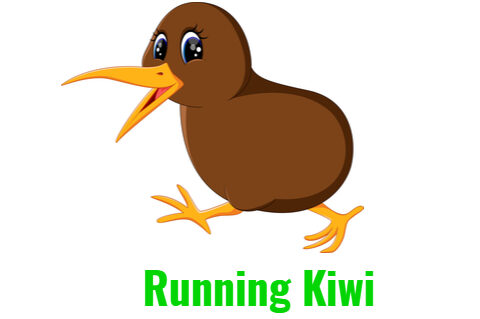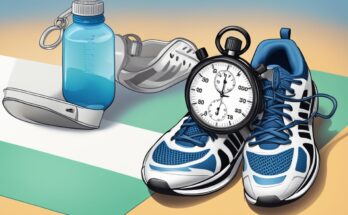Many runners often wonder if drinking coffee before a run can help boost their performance. While some studies suggest that caffeine can improve endurance and reduce perceived exertion, the timing of coffee consumption can also play a role in its effects.
So, how long before a run should one drink coffee? The answer can vary depending on individual factors such as caffeine tolerance, metabolism, and the length and intensity of the run. Generally, it’s recommended to consume caffeine about 30 minutes to an hour before exercise to allow enough time for it to take effect without causing digestive discomfort.
However, it’s important to note that caffeine affects everyone differently and some people may experience negative side effects such as jitters, anxiety, or upset stomach. It’s recommended to experiment with different timings and amounts of caffeine to determine what works best for each individual.
The Effects of Coffee on Running Performance
Drinking coffee before a run has become a common practice among runners. It is said to provide an energy boost and improve endurance, but what are the actual effects of coffee on running performance?
Caffeine, the active ingredient in coffee, is a stimulant that affects the central nervous system. It blocks the neurotransmitter adenosine, which is responsible for making us feel tired, and increases the levels of dopamine and norepinephrine, which promote feelings of alertness and focus.
Studies have shown that caffeine can improve running performance by reducing perceived exertion and increasing time to exhaustion. It can also increase the use of fat as fuel, which can help spare glycogen and delay fatigue.
However, the effects of coffee on running performance can vary from person to person. Some individuals may experience negative side effects such as jitters, anxiety, and gastrointestinal distress. It is important to experiment with the timing and amount of coffee consumed before a run to find what works best for each individual.
It is also important to note that caffeine is a diuretic, which means it can increase urine output and lead to dehydration. Therefore, it is recommended to drink plenty of water along with coffee to stay hydrated.
Timing Your Coffee Intake Before Running
How Caffeine Affects Your Body
Caffeine is a natural stimulant that affects the central nervous system. It blocks adenosine, a chemical that makes you feel sleepy, and increases the levels of adrenaline and dopamine in the brain. This results in increased alertness, improved focus, and a boost in energy levels.
How Long It Takes for Caffeine to Take Effect
The effects of caffeine can be felt within 15 to 45 minutes of consumption. However, the peak effects are usually felt after 30 to 60 minutes. The half-life of caffeine is around 5 hours, which means that it takes around 5 hours for the body to eliminate half of the caffeine consumed.
Factors That Affect Caffeine Absorption
Several factors can affect how quickly caffeine is absorbed and metabolized by the body. These include:
- The amount of caffeine consumed
- The type of coffee or other caffeinated beverage consumed
- The individual’s body weight and metabolism
- The individual’s tolerance to caffeine
- The presence of other substances in the body, such as medications or alcohol
It is important to note that caffeine affects everyone differently, and what works for one person may not work for another. It is recommended to experiment with caffeine intake before running to find what works best for you.
Best Practices for Drinking Coffee Before Running
Drinking coffee before running can help boost energy and performance, but it is important to do so in a way that maximizes the benefits and minimizes the risks. Here are some best practices to follow:
Recommended Timing for Coffee Intake
It is recommended to drink coffee 30-60 minutes before running. This allows enough time for the caffeine to be absorbed into the bloodstream and reach peak levels, providing a boost of energy during the run. Drinking coffee too close to the run may result in stomach discomfort or a sudden urge to use the bathroom.
How Much Coffee to Drink Before Running
The amount of coffee to drink before running varies depending on individual tolerance and sensitivity to caffeine. Generally, 1-2 cups of coffee (8-16 ounces) is a safe and effective amount. Drinking too much coffee can lead to jitters, anxiety, and dehydration, which can negatively impact performance.
It is also important to consider the strength of the coffee. A strong cup of coffee may have more caffeine than a weaker cup, so adjust the amount accordingly.
Alternatives to Coffee for Pre-Run Energy
For those who do not tolerate coffee well or prefer not to drink it, there are other options for pre-run energy. Some alternatives include:
- Green tea: contains caffeine and antioxidants that can help boost energy and reduce inflammation
- Beet juice: contains nitrates that can help improve blood flow and oxygenation to the muscles
- Water: dehydration can lead to fatigue and decreased performance, so make sure to drink plenty of water before running
It is important to note that while these alternatives may provide a similar energy boost to coffee, they may not have the same effects on performance as caffeine.
Conclusion
Drinking coffee before a run can have both positive and negative effects on a runner’s performance. While caffeine can improve alertness and reduce perceived exertion, it can also cause dehydration and stomach discomfort if consumed in excess.
It is recommended to consume coffee at least 30 minutes before a run to allow time for the caffeine to take effect. However, each individual’s tolerance to caffeine varies, and it is important to experiment with timing and dosage to determine what works best for you.
Additionally, it is important to stay hydrated before, during, and after a run, especially if consuming coffee. Drinking water or a sports drink can help offset the dehydrating effects of caffeine and prevent cramping and fatigue.
Ultimately, whether or not to drink coffee before a run is a personal choice that should be based on individual preferences and goals. It is important to listen to your body and make adjustments as needed to optimize your performance and enjoyment of running.




